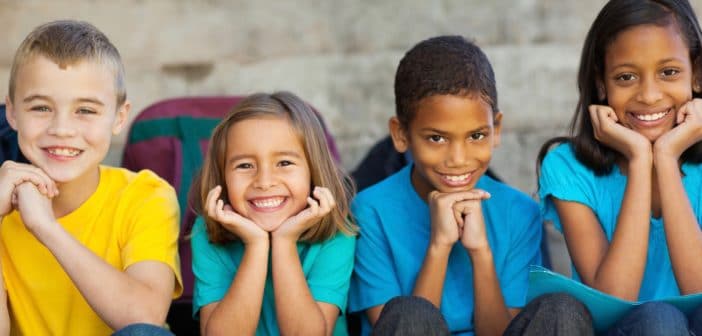 Recently, Jerry Moe of the Hazelden Betty Ford Foundation was delivering a lecture called “Changing the Family Legacy,” speaking to about 100 people who have struggled with addiction. When he asked how many of them grew up in a home affected by the disease, only two people in the room did not raise their hands.
Recently, Jerry Moe of the Hazelden Betty Ford Foundation was delivering a lecture called “Changing the Family Legacy,” speaking to about 100 people who have struggled with addiction. When he asked how many of them grew up in a home affected by the disease, only two people in the room did not raise their hands.
“This disease inadvertently gets passed,” Jerry Moe says. Although the familial cycle of addiction has been well-documented, Moe believes that it can be interrupted, and he has dedicated the past 20 years to doing just that as the national director of the Children’s Program at the Hazelden Betty Ford Foundation.
“The goal of the Children’s Program is to initiate and deepen the healing process for boys and girls growing up in a family that has been hurt by alcoholism and other drug addictions,” Moe explains. “Children are often the first hurt and the last helped.”
The Children’s Program provides education and support for kids between the ages of 7 and 12 who are dealing with an addicted family member, usually a parent or older sibling. During the three-day program, children who have been effected by addiction go through role-playing exercises, games and group discussions that help them identify and express their feelings, develop self-care skills, and strengthen their communication skills.
“We help them to understand it’s not their fault,” Moe says. “We give them tools to deal with issues as they comes up, not let them build up inside.”
The Children’s Program has reached about 27,000 children since it began in 1996. In addition to being offered at Hazelden Betty Ford Foundation facilities in Colorado, Texas and California, the program is also offered through schools to children who need it.
“The idea was that there was always going to be a percentage of kids who couldn’t get here who desperately needed our help,” Moe says. “We needed to go where kids are, and they’re at school.”
No child is ever turned away from the program because of inability to pay, and donations are important to funding the program and the full-time staff members that it requires. The program has become an important part of The Hazelden Betty Ford Foundation’s mission.
“All the way back to the beginning of the Betty Ford Foundation there was realization that we had to work with kids,” Moe says.
One of the most important exercises during the program is the bag of rocks. Kids are given the chance to pick up a heavy back-pack filled with rocks symbolizing the emotional issues that their loved ones with addiction are carrying around inside. This exercise helps children understand addiction and separate the disease from the parent or sibling that they love.
“We talk about this being a family disease, and that this is a disease that hurts everyone, but there just aren’t many opportunities where boys and girls are allowed to be an integral part of the treatment and recovery experience,” Moe said.
On the third and final day of the program, children are given the chance to talk to their loved one about how the disease of addiction has affected them. Moe recalls a father who had just finished 90 days in rehab when he brought his daughter to the Children’s Program. During the reading, the little girl had poignant words for her dad.
“She said, ‘Thank-you for going to get help. You were home last night and I haven’t felt that safe in so long. I don’t want addiction to take you away again, so please work on getting better,’” Moe recalls. “And the father told me that this was such an important moment in his recovery.”
Moe has found that having a child participate in the program often strengthens a parent’s recovery.
“Kids have a way of helping the family heal, and helping parents let go of shame and guilt,” he says.
Moe remembers speaking with Betty Ford herself about the importance of helping parents in recovery.
“Mrs. Ford sat with me and we talked about our goals, vision and dreams. She said, ‘If we really want to make difference in a child’s life, don’t just help the child, help whoever is raising that child,’” he recalls.
By bringing kids touched by addiction together, the Children’s Program helps cut through the shame and stigma many children feel. Moe said that despite the fact that one in three children are affected by addiction, each believes he or she is the only one. Seeing that belief shattered is one of his favorite parts of the program.
“On the second day they’re looking at each other, saying ‘so you don’t want to invite friends over either?’ or ‘you get scared when they fight?’ or ‘you get angry when you’re blamed?’” Moe says. “The program normalizes the experience that kids have.”
Empowering children is an important part of breaking the cycle of addiction, and it’s at the core of The Children’s Program.
“We give kids a voice,” Moe said. “How many adults in treatment didn’t have that when they were little kids? The disease of addiction is one of silence, secrecy shame and isolation. We’re helping kids break through that.”
Sponsored DISCLAIMER: This is a paid advertisement for California Behavioral Health, LLC, a CA licensed substance abuse treatment provider and not a service provided by The Fix. Calls to this number are answered by CBH, free and without obligation to the consumer. No one who answers the call receives a fee based upon the consumer’s choice to enter treatment. For additional info on other treatment providers and options visit www.samhsa.gov.




